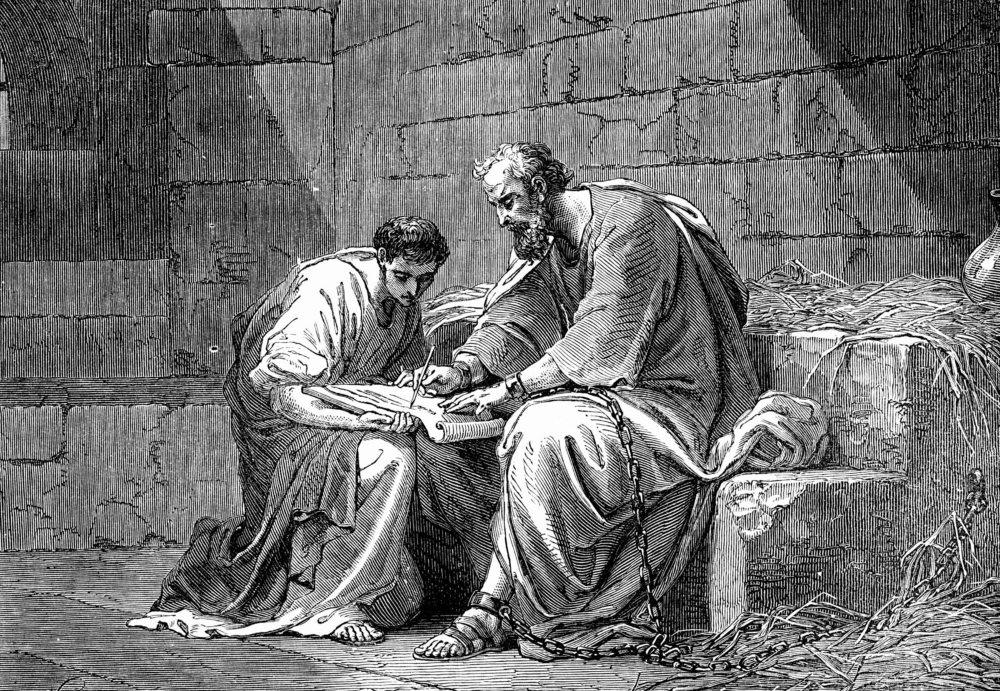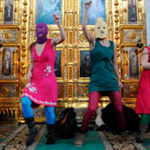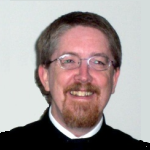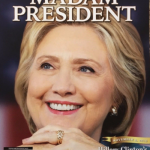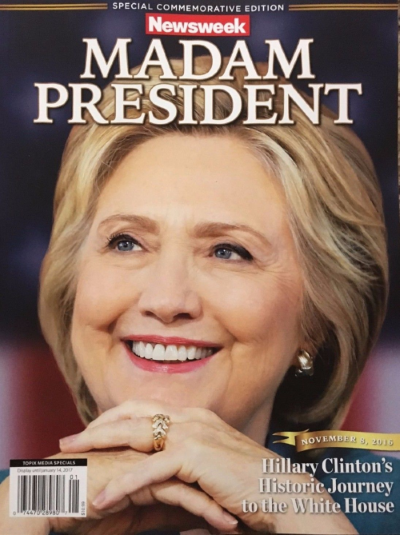By John G. Panagiotou
The nature of the work of the pastor is not to be defined by the culture, congregation or the pastor himself, but by the Lord.
IIn Marva Dawn and Eugene Peterson’s book The Unnecessary Pastor, we are given an insight into the plight of contemporary pastoral leadership. Originally, the title of this book was taken from a Regent College church leaders’ conference which was led by the authors. The authors provide us with the following stunning thesis: the clergy and churches are in crisis today in large part due to an identity crisis in how the culture, congregations, and the clergy themselves view and regard their respective call, role and function.
In the book, the focus is on the Pastoral Epistles (I & II Timothy, Titus) of what pastoral ministry ought to be through the lens of the larger framework of the Letter to the Ephesians. Petersen recreates for the reader the Greco-Roman world and historical context of Paul, Timothy and Titus in a vivid manner. It is within this context that we see how truly counter-cultural the Gospel (Good News) message was in the first century and is in today’s world. It is a message that proclaims and calls all people to belief in the literal Resurrection of Jesus through a radical life change of repentance and baptism. Thus, this new life in Christ was a challenge and a threat in the Apostolic age to the societal status quo and remains a challenge and a threat to the societal status quo in our modern times. Dawn and Peterson note that, “The Christian community is an alternative society.”1
With this understanding, Petersen and Dawn assert that what is needed in today’s Church, is to rediscover and reclaim the ancient Apostolic perspective, form and practice of ministry as expressed in the New Testament. Petersen states emphatically that the inner communion of the Three Persons of the Trinity should be the image for the ministry model that the clergy should seek to emulate and not to conform to the standards set by the worldly culture. The end result of the former is for the pastor to become a faithful and effective Christ-centered servant leader. Hence, the pastor becomes “unnecessary’ to the success of the local church. Whereas, the end result of the latter is for the pastor to fall into the secular worldly-based model of ministry by becoming a manager, marketer, entertainer and therapist.2 Thus, the pastor becomes “necessary” to the success of the local church by subscribing to a pastor-centric focus. It is this goal of making clergy unnecessary to which the book has as its primary aim. This is a move which necessitates a transition from a form of culturally-determined managerial professionalism to a Biblically-determined pastoral leadership.
This problem is created by three components which when succumbed to derail the primary focus and function of the pastoral ministry. These are: yielding to what the culture defines as important; yielding to what the pastor defines as important; and yielding to what the congregation defines as important.3 When these criteria and their attending mindset are present, a ‘corporate business model” of the Church manifests itself. As the authors note, “with hardly an exception they don’t want pastors at all – they want managers of their religious company.’4
This is problematic in many ways, but particularly in light of the fact of the increasing acceptance in the Church of the pastor as a sort of “CEO”. This secular notion diminishes the pastor’s apostolic calling. The ways of the world displace the scriptural worldview. It flies in the face of sound doctrine by making the pastor into a hireling who can be dismissed at will based upon human personal whim and not with an understanding of the pastor as the custodian of the truth of the Gospel. This work provides a clarion call to renew, retrain, and refocus the mindset of pastors to be the counter-cultural servant-leaders of Christ they were intended to be.
Of the several ministry-related issues which are raised in the book, I think that two have particular relevance to me in my ministry experience in light of the Pastoral Epistles and the Letter to the Ephesians.
The first issue that I see as relevant to my ministry is the need for ministry to be rooted on the Apostolic model and to resist the secular mindset which is permeating local churches and denominational jurisdictions. The congregation should not set the tone, scope or nature of the pastor’s ministry. By mere definition, it shouldn’t because it can’t. Ontologically, the pastor’s call is of Apostolic origin. As the authors rightly observe, “Everybody and his dog has a job description for the pastor. Everybody knows what a pastor must do to be a real pastor. That’s a problem, but what complicates and compounds it is that it’s nice to be so needed, nice to have culture and congregation alike interested in defining our work and giving us instructions on how to go about it. It’s nice to be so much in demand.”5 As a result, the focus becomes the pastor and his ministry instead of Jesus and His work. The Apostle Paul reminds Timothy, “fan the flame the gift of God which is in you through the laying on of my hands”.6 The nature of the work of the pastor is not to be defined by the culture, congregation or the pastor himself, but by the Lord.
The second issue that I see as relevant to my ministry is the need for the local church to proclaim the divinely revealed message of the Good News in an unashamed, uncompromised way to a world that not only is disinterested in it, but is often hostile to it. When a congregation negates its evangelical mission-minded vocation, it gains a preoccupation with everything else of the world except for the preaching of the Gospel. Hence, by virtue of this situation, the pastor’s ‘job description” changes.
The pastor is not really viewed as and expected to be a proclaimer of the Truth, but rather a socio-religious community caretaker and organizer. Paul would go on to advise Timothy to, “Preach the Word; be ready in season and of season. Reprove, rebuke, and exhort with complete patience and teaching”.7 The Church and its leadership today have willingly become subordinated to the influence and narrative of the secular culture. In Ephesians, it is precisely this mindset that the Apostle Paul rails against. He writes, ‘Look carefully then how you walk not as unwise but as wise, making the best use of the time because the days are evil.’8
Both of the above mentioned aspects involve being Biblically-rooted in sound doctrine. Paul writes to Titus, “teach what accords with sound doctrine.’9 This is the overarching theme and emphasis that we find in the Pastoral Epistles. Without sound doctrine, one falls into heresy and/or apostasy. Thus, in the Pauline view of things, one’s ministry is compromised and mutedly ineffectual. Dawn and Peterson explain this in the following way, “the early Christians did not try to translate their faith into something that was accessible to the world’s darkened understanding. What they did instead was to engage in a way of life that was so different from the world that their neighbors wanted to be part of it.”10 It is this missiological expression of Christian witness which typifies the Biblical New Testament model of the local church and its outreach to the world.
I see this time and time again in church communities within my own Greek Orthodox faith tradition; yet, these problems are not relegated to one group but rather are inter-denominational. In a recent article in a Greek-American publication, I read the following where the writer accurately describes the lamentable state of today’s Greek Orthodox clergy, “A priest is considered successful only when he manages to collect more and more money. Unfortunately, our priests today have become some kind of religious tax-collectors.”11
The above situation is appalling, disturbing and scandalous on a variety of levels. Now contrast this with what Dawn and Peterson say about their ministry model, “We have to scrap most of what we are told today about leadership. Forget about charisma, go for character12…Whenever money pulls churches away from their God-given purposes, then it is functioning as Mammon.”13
Very often, if one were to walk in off the street into a church social gathering, he would see no different behavior amongst it members than say a meeting of the Rotary, Lions Club, Elks or any other civic organization. The point is that the church is not living up to its true calling and potential when it seeks to fit in with the world instead of seeking to please God. This is in direct opposition to what the scriptural record of how the early ancient New Testament Church operated.
In his Letter to the Ephesians, the Apostle Paul teaches that God has given His people salvation through the gift of faith in His Son Jesus. He speaks of how he experienced this by referring to “how the mystery was made known to me by revelation”.14 Paul believes and unequivocally states that his ministry is supernatural. It is not of earthly intent, essence, or means. This supernatural nature of his ministry is from where he attributes his authority as an apostle.
Consequently, he exhorts that we as God’s people are called to express this new life we have in Christ by holy living and self-sacrificial love.15 It is precisely this diakonia (service) of love to one another rooted in worship that should exude from the pores of the community in its church life.
Paul teaches that his ministry is of apostolic origin which is rooted in a mystery of revelation when he writes, “of this gospel I was made a minister according to the gift of God’s grace which was given me by the working of his power.”16 This is a clear directive for us to scrap the corporate model of the Church to which we have erroneous been beholden. A new direction needs to be charted by pastors and congregations whereby the Biblical imperative is heeded and the Biblical standard is established and maintained. The Church needs to stop allowing itself to be molded by the culture and start challenging and influencing the culture. It needs to stop being about us and our needs and start being about discerning the Will of God in our personal, familial, and ecclesiastical lives. In The Unnecessary Pastor, we read that “the Gospel that Jesus brought and the Paul preached is not first of all about us; it is about God…None of this involves fulfilling our needs as we define them.”17
The problems that the Church faces today are seemingly self-imposed. Often times, the Church has allowed its narrative to be controlled by the prevailing culture which represents direct opposition to the Gospel message; this has effected how the institutional Church regards and treats Her clergy. Individuals who do not have a Christ-centered mindset populate our congregations and their leadership; this has affected how the local church regards and treats its clergy. Worst of all, the clergy themselves have allowed their own understanding of pastoral ministry be shaped by the false understanding culture and the congregations. In spite of the fact that the Pauline model of church life teaches something entirely different than what is being practiced today in contemporary Christianity. All of this takes us down the spiritually destructive path of pride, arrogance, vanity, and hubris.
The book’s authors give the reader the following warnings about what can happen to pastors when this perfect storm strikes, “The constant danger for those of us who enter the ranks of the ordained is that we take on a role, a professional religious role, that gradually obliterates the life of the soul.18…Humility recedes as leadership advances…Instead of continuing as followers of the Lord Jesus Christ, we become bosses on behalf of the Lord Jesus Christ.”19
I think that in the final analysis, the question is begged. Why do we keep doing these wrong things by maintaining these false paradigms? This is especially pointed when we read the writings of the Apostle Paul who admonishes us to do otherwise. We need to start listening to Paul again. It has been much too long that we have been doing our own thing. We need individual and communal repentance on this matter. We need to become a truly believing and praying Church. For many in the Church, this will be revolutionary and radical change. Well, they are right. Yet, this is our true paradosis (Tradition = deposit of faith) which has been handed down. Only then will we see the change that we so desparately need and yearn for whether we realize it or not.
My hope is that the Church gets it act together and follows a Pauline model once again. I would greatly like to see pastors become the teachers and examples that they were meant to be and not the wishy-washy, superficial and vapid community organizers and fundraisers that they have become. In many cases, they don’t even do those things well. As The Unnecessary Pastor reminds us, “teaching is at the center of leadership work in the Christian community. Every piece of the gospel is to be lived, so we must keep on teaching…teaching people how to live, not teaching people how to pass exams.”20
In conclusion, I would highly recommend this book to all pastors, denominational leaders, and to local church members. It gives a Biblically-based New Testament perspective of Christian ministry. It clearly defines the problems in the modern Church for the last several decades. It gives practical solutions to the previously mentioned problems.

FOOTNOTES
1 Marva J. Dawn and Eugene H. Petersen, The Unnecessary Pastor: Rediscovering the Call (Grand Rapids: Eerdmans, 1999), 215.
2 Dawn and Petersen, 61.
3 Dawn and Petersen, 4.
4 Ibid.
5 Dawn and Peterson, 184.
6 II Timothy 1:6
7 II Timothy 4:2
8 Ephesians 5:15
9 Titus 2:1
10 Dawn and Peterson, 160.
11 Theodore Kalmoukos, “Parish Council Elections and Indifference,” The National Herald (December 13, 2016).
12 Dawn and Peterson, 20.
13 Dawn and Peterson, 110-11.
14 Ephesians 3:3
15 Ephesians 5:1-30
16 Ephesians 3:7
17 Dawn and Peterson, 127.
18 Dawn and Peterson, 14.
19 Dawn and Peterson, 15.
20 Dawn and Peterson, 134.

John GPanagiotou is a Greek Orthodox theologian, scholar and writer He is a graduate of St. Vladimir’s Orthodox Theological Seminary and Wheeling Jesuit University Panagiotou is Lecturer in New Testament Greek at Cummins Theological Seminary.
